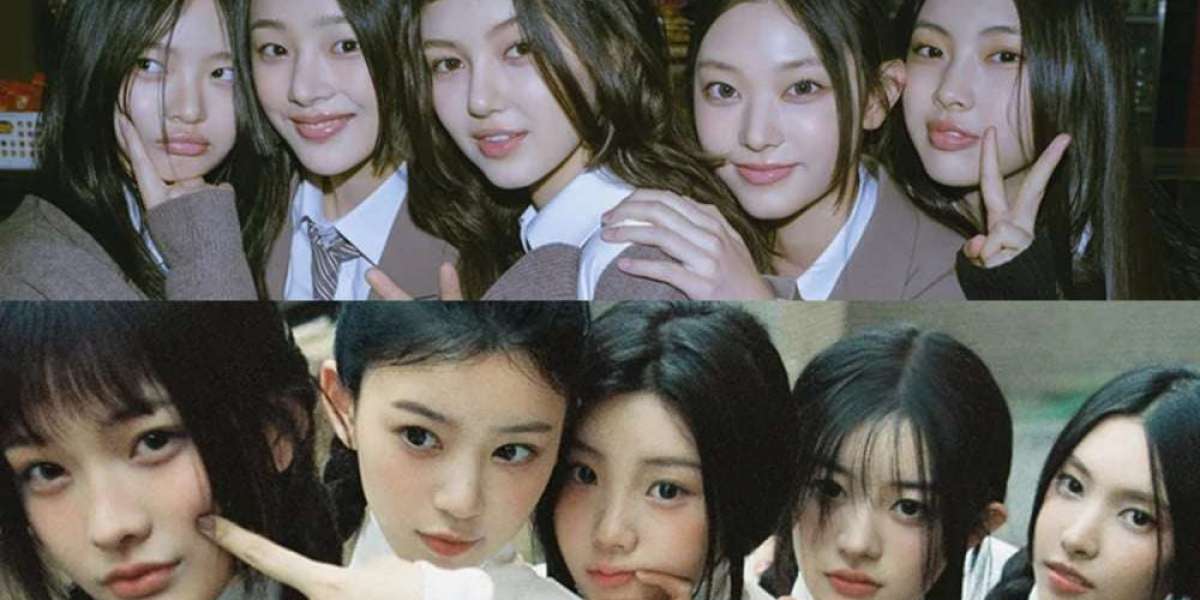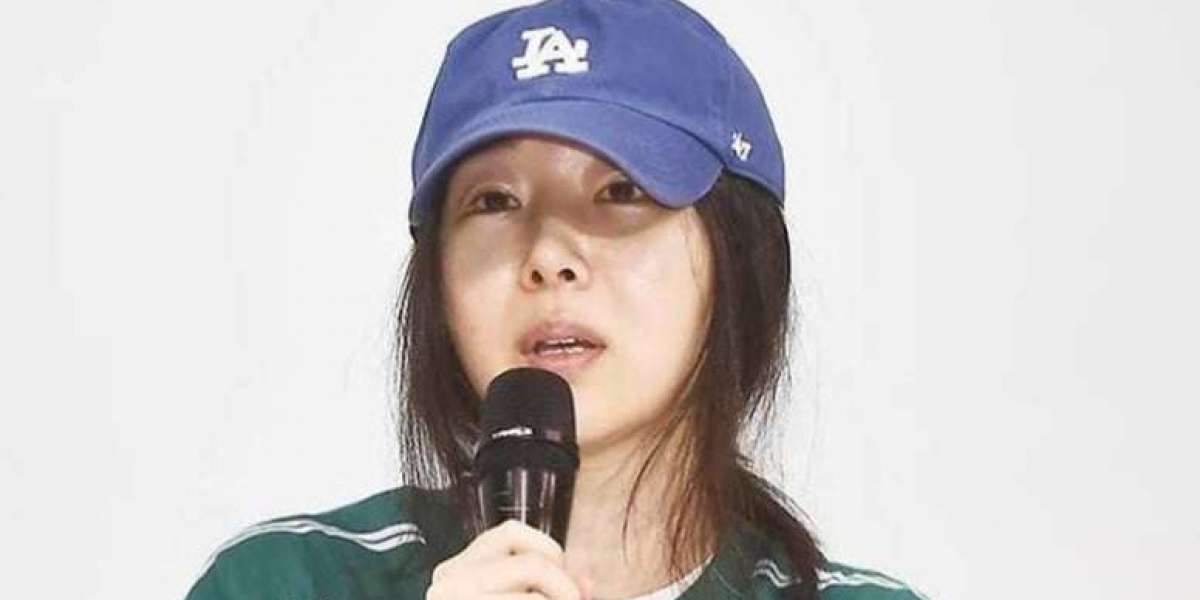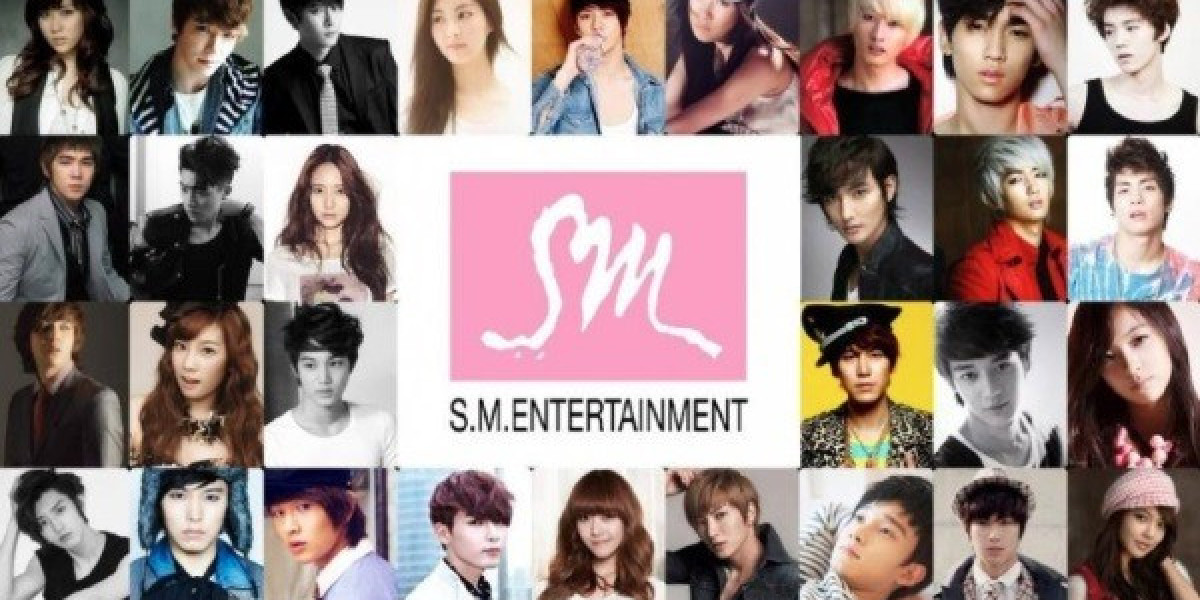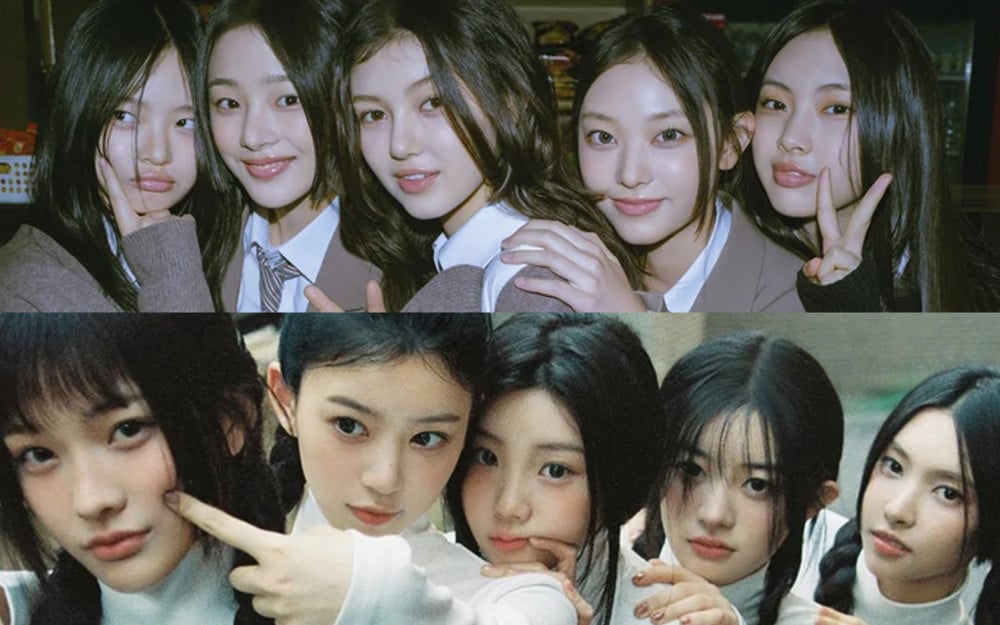
"Is ILLIT a copy of NewJeans?" Music industry experts have expressed concerns over the striking similarity in their "concept" rather than the issue of "plagiarism" or "copying." These experts all shared the same opinion that legal protection against such practices is needed.
The Truth Behind ILLIT's Alleged Copying NewJeans Controversy
The conflict between HYBE and ADOR stems from ILLIT's alleged copying of NewJeans, which is central to the dispute. At the heart of this disagreement is a non-compete clause, negotiated between Min Hee Jin, ADOR's CEO, and HYBE as part of a shareholder agreement coinciding with ILLIT's debut. As concerns arose about internal whistleblowing and suspicions of ILLIT's copying, HYBE exercised its auditing rights and made them public through the media.
Min Hee Jin expressed her position, stating, "HYBE is severely infringing upon the cultural achievements of ADOR and its artists, including NewJeans." She highlighted, "Belift Lab, a label under HYBE, launched ILLIT in March and has been imitating NewJeans in various entertainment activities, from hairstyles and makeup to costumes, choreography, photography, videography, and event appearances."
As a result, the controversy over ILLIT's copying of NewJeans has arisen, and the debate continues. The suspicion that ILLIT plagiarized NewJeans is spreading and intensifying within online communities frequented by young adults in their 20sa, who are the main consumers of K-pop.
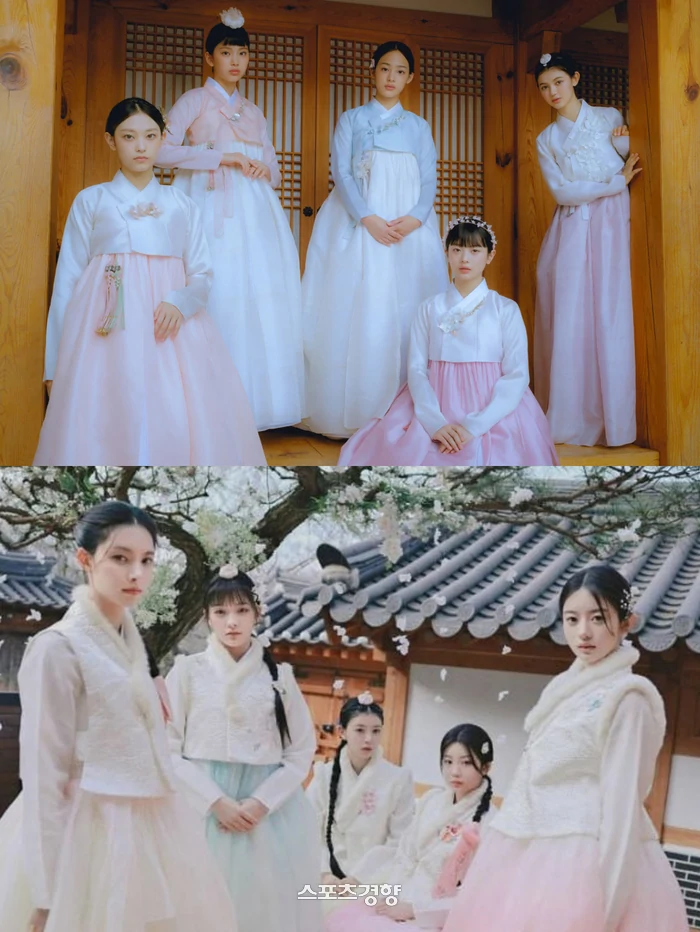
It's true that since their debut, ILLIT has been evaluated as a group similar to NewJeans. Both groups are under the HYBE label, both are five-member girl groups, both debuted with fast-paced digital music, both adopted a dreamy school uniform concept, and their choreography is also similar. Additionally, both groups made appearances at fashion brand events shortly after their debuts.
Internet users have pointed out similarities between NewJeans and ILLIT's album covers and artwork, photo cards inserted in the albums, and 2D illustrations depicting the members as characters.
Experts say "Similar concepts" alone pose a significant issue
Experts in the music industry have agreed on the similarity between NewJeans and ILLIT. An executive from a music agency stated, "The key to idol groups lies in their concept. Even if there are differences in the details, if the overall concept is similar, it can be seen as a clear infringement." Another representative from a different music agency also commented, "Regardless of the similarity between groups, if similar-concept groups under the same parent company debut in March, engage in activities in April, and another group makes a comeback in May, it appears there are significant scheduling errors, regardless of intent."
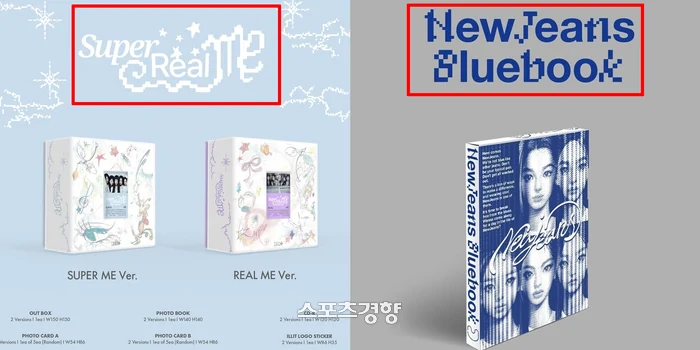
Other experts in the music industry have also clearly stated that ILLIT has been heavily influenced by NewJeans. They've also highlighted the fact that the younger generation, who are avid consumers of K-pop, are actively pointing out the similarities in concepts.
An anonymous but well-known visual artist remarked, "While homage and parody are acceptable in creative work, actions that undermine pure originality should be subject to criticism. Comparing the fonts and artwork of NewJeans and ILLIT albums, it appears to infringe upon the unique efforts of the creators." They further added, "This could not only cause discontent among the public but also many creators themselves."
A Brand Marketing Manager from a global brand expressed, "The debate about the similarity between the two groups isn't just about sharing similar concepts. It seems like ILLIT has copied NewJeans' success formula to the point it's like 'tracing' (the outline)."
They added, "From the Y2K retro vibe and the innocence of teenage girls to the dreamy pastel-toned visuals and even HYBE's marketing strategies, ILLIT feels like it's replicated NewJeans' success formula entirely. While referencing is common in brand planning, ILLIT seems to have gone beyond that."
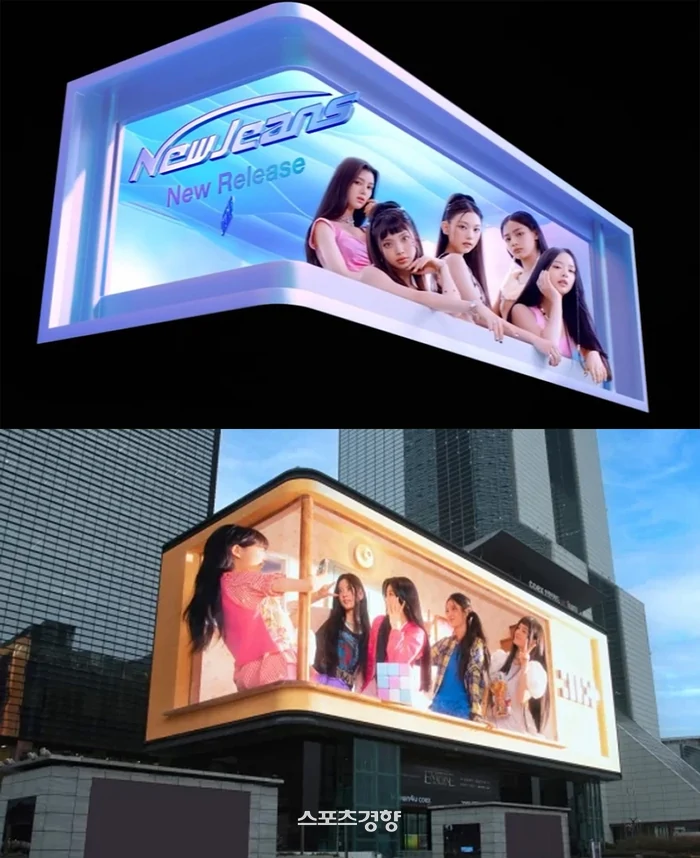
Furthermore, this executive commented, "HYBE seems to be rushing to blindly follow a success formula, neglecting the minimum pride and conscience creators should uphold. This behavior is worrisome not just because it concerns ILLIT alone but also because it could affect the ethical standards of creativity across the entire K-pop industry."
Moreover, they emphasized, "As a global entertainment company, HYBE should develop branding strategies that respect artists' creativity and highlight each group's unique appeal. Rather than simply copying a basic success formula, I hope they contribute to the advancement of the K-pop market through continuous innovation and differentiation."
"Even if the concepts are similar, legal protection is virtually non-existent... Did HYBE receive legal assistance from Kim & Jang?"
The similarity between NewJeans and ILLIT is essentially seen as falling into a legal gray area.
According to lawyer No Jong Eun, the representative of the law firm Jeonjae, "In shareholder agreements, there's no effective provision allowing a subsidiary like ADOR to defend the actions of the parent company, HYBE, if ADOR copies HYBE's concept and choreography. Even if there's plagiarism, the structure practically makes mounting a defense difficult." He further explained, "Min Hee Jin's reference to a 'slave contract' seems to stem from a sentiment that her position is akin to that of slaves producing crops on a plantation, where their creations are unjustly taken by the owner. This situation forces creators, regardless of their feelings, to endure such behavior unconditionally due to the unilateral compensation of money."
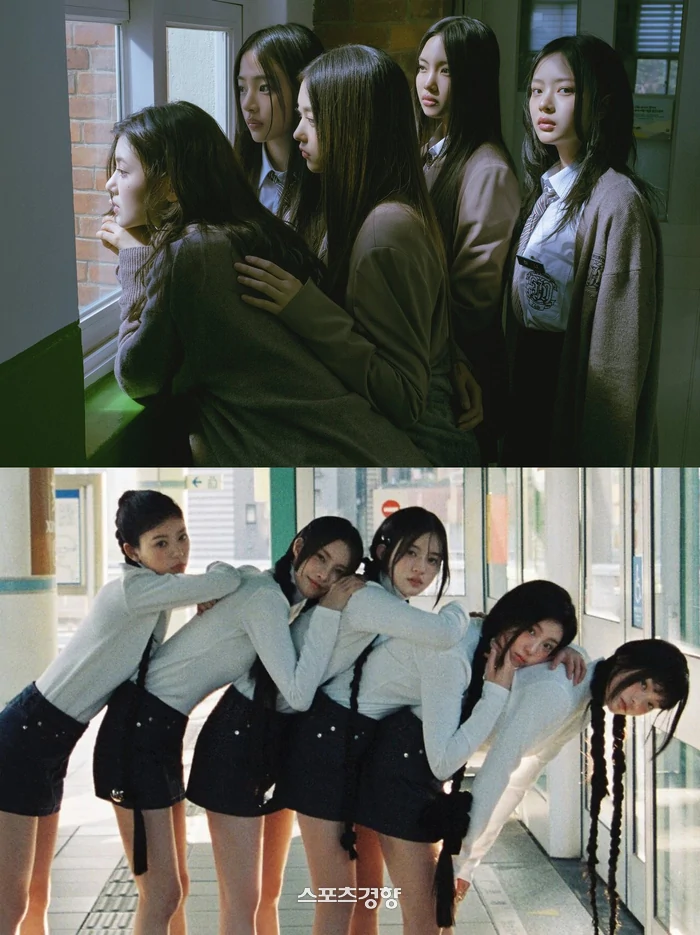
Moreover, he pointed out, "One notable flaw in shareholder agreements is the lack of regulation regarding instances where the parent company unauthorizedly adopts the concept of its subsidiary. Such occurrences, even in other label group operations, are unprecedented, indicating a regulatory gap in this aspect." He further explained, "Given that South Korean commercial law is predominantly structured around traditional industries, understanding the label industry solely through this framework poses considerable challenges. Instead, the label industry should be approached as a novel concept evolving to safeguard the intellectual property of creators."
Lastly, Lawyer No Jong-eun remarked, "Concepts and choreography currently reside in a legal gray area unlike music recordings, which enjoy intellectual property protection. Interestingly, within the same label concept, the gaming industry labels tend to witness higher instances of intellectual property infringement by subsidiaries compared to fashion industry labels. Such cases highlight misuse within the industry."
